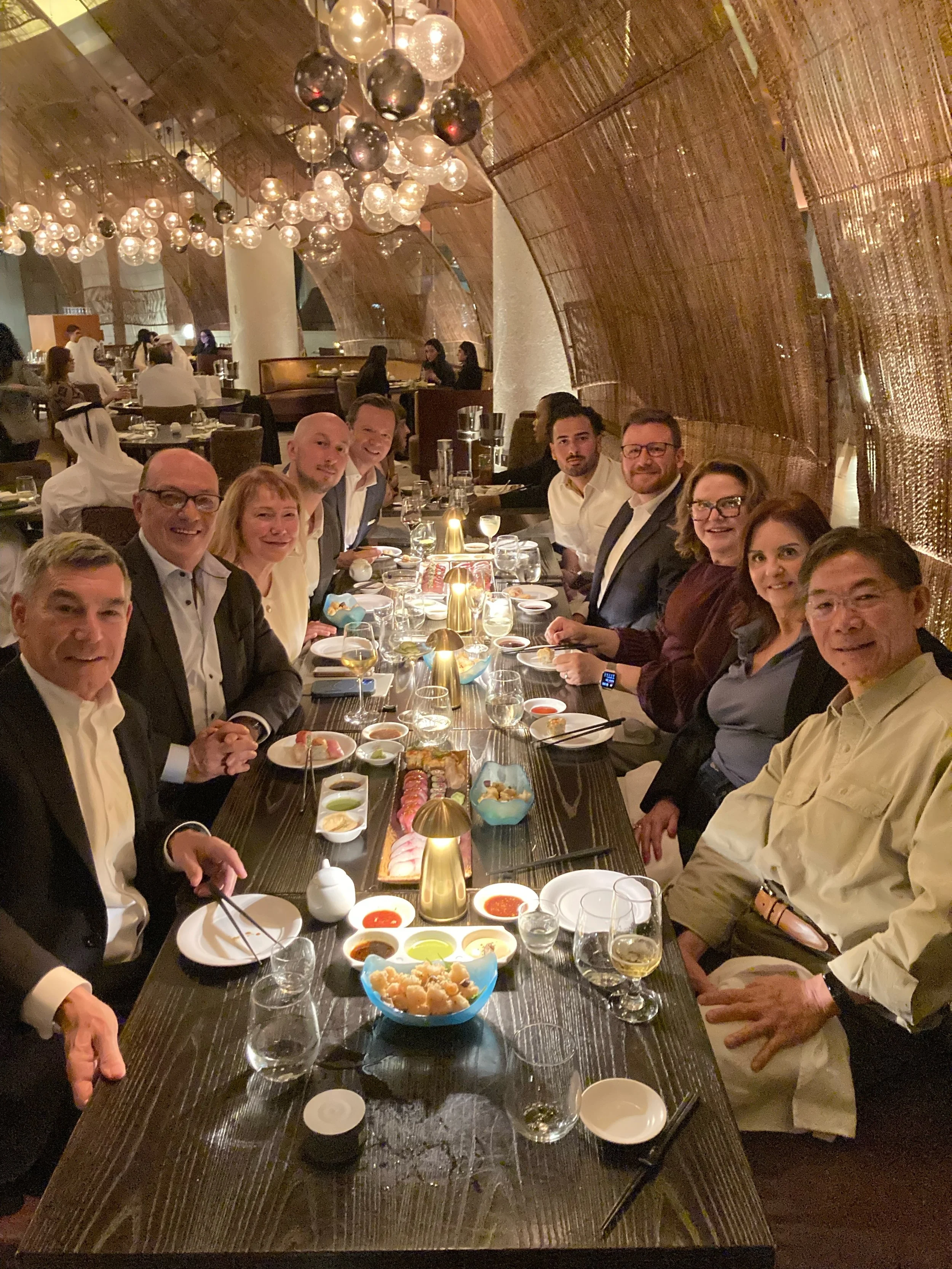Most Americans are unfamiliar with the Middle Eastern country of Qatar—let alone how to pronounce it. Recently, I had the opportunity to travel there representing Global Ties Arizona as part of a national delegation hosted by the Embassy of Qatar under the auspices of the Washington, D.C.-based World Affairs Councils of America.
This introduction to Qatar, centered in the capital city of Doha, was an eye-opening experience. I learned about the country's history, culture, government and non-government institutions, and economic development. Geographically, Qatar is a peninsula shaped like a thumb jutting into the Persian Gulf, roughly the size of Connecticut and Rhode Island combined. It shares borders and proximity with Saudi Arabia and the United Arab Emirates.
From 1916 until its independence in 1971, Qatar was a British protectorate. The British oversaw external affairs and defense, while internal governance was led locally by Sheikh Abdullah Al Thani—a role still held today by members of the Al Thani family.
Qatar is home to Al Jazeera Media Network and once thrived on the natural pearl industry, which collapsed with the advent of cultured pearls in Japan. The discovery of oil and natural gas transformed its economic future. Today, fossil fuel revenue drives Qatar’s economy and national ambitions, clearly reflected in Doha’s spectacular skyline—especially at night, when its illuminated architecture shimmers off the Gulf waters.
Central to Qatar’s development is its investment in education. At “Education City,” overseen by the Qatar Foundation, elite U.S. universities including Georgetown, Northwestern, and Texas A&M offer degree programs in Doha aligned with national goals. The Qatar National Library, with over one million physical books, complements this effort and underscores the country’s commitment to learning.
Importantly, Qatar’s rapid modernization has not come at the expense of its heritage. The National Museum of Qatar (which also houses the National Archives), the Museum of Islamic Art, and the Islamic Cultural Center showcase and preserve the country’s culture and history.
Qatar’s constitution enshrines its role in international mediation, most recently visible in efforts between Hamas and Israel. Its long-standing role in conflict resolution has elevated Qatar’s global stature.
The country also wields “sports diplomacy” effectively, having hosted the 2022 FIFA World Cup and the 2024 Asian Cup. World-class stadiums and infrastructure were built to support these international events.
Much like Arizona, Qatar is a desert country—but with more humidity. It relies on groundwater from aquifers and advanced desalination technology to meet its water needs. Temperatures are similar to those in the Sonoran Desert and can exceed 110°F.
During our trip, we met with representatives from the Ministry of Foreign Affairs, the Diplomatic Institute, and U.S. Ambassador Timothy Davis at the U.S. Embassy.
Doha is a modern city marked by distinctive architecture, a clean and efficient transportation network—including a sleek subway system—and an overall sense of safety.
This Fall, Global Ties Arizona will host a public presentation about Qatar to share more about the country and my experience there. I hope you’ll join us.
